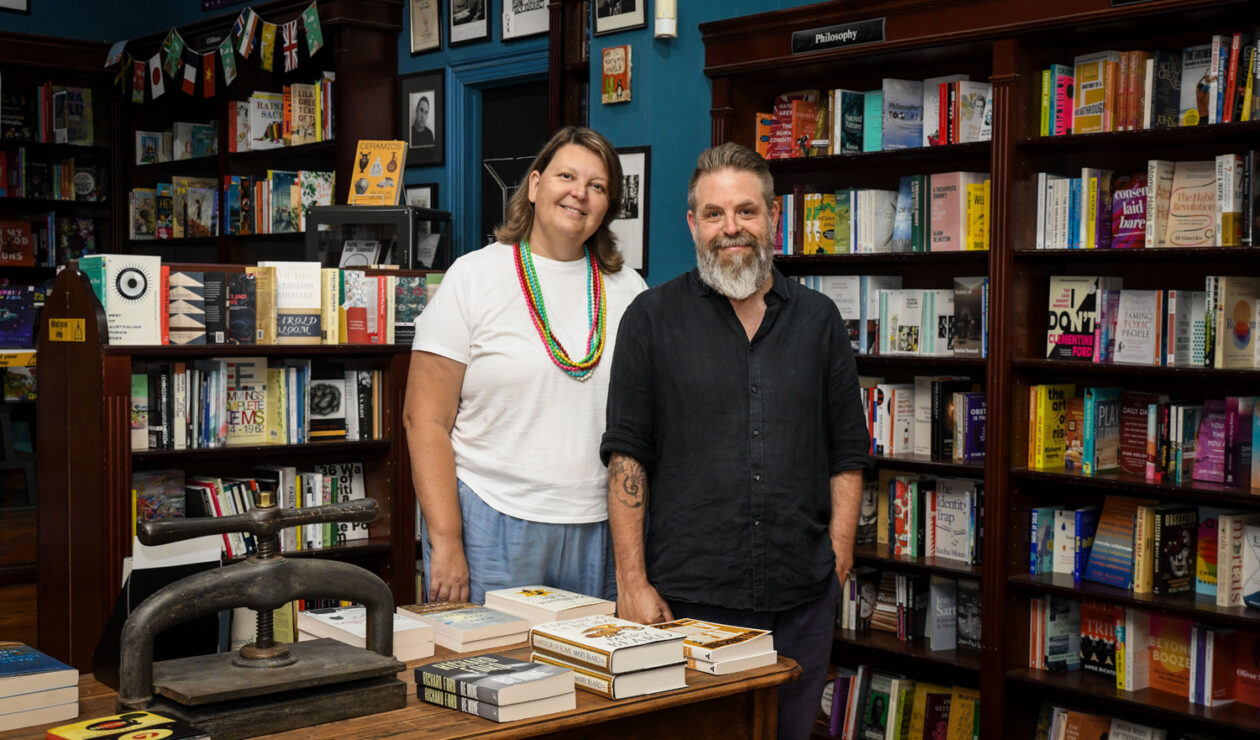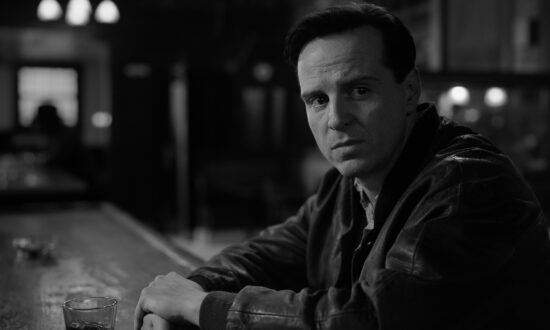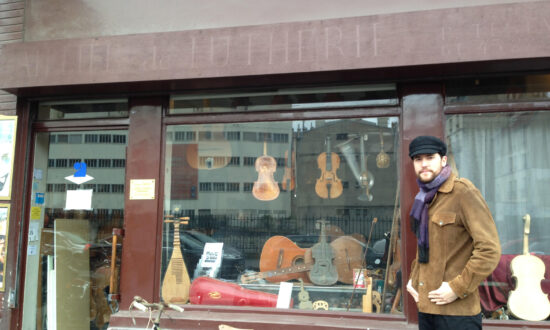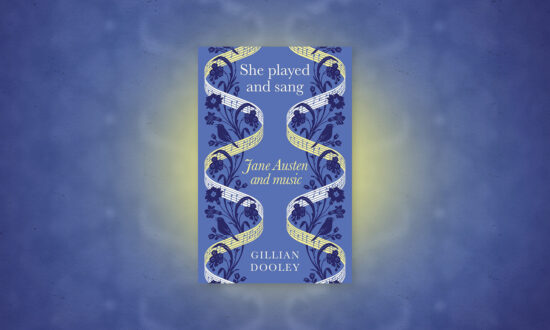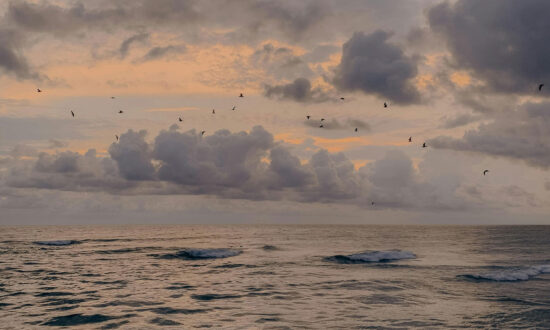I’m sitting in the back room of Imprints Booksellers on Hindley Street, the last independent bookshop in Adelaide’s CBD. A week ago, co-owner Jason Lake called to confide he and Katherine Woehlert are selling, after working here almost their whole adult lives. Once their bookseller employee, today I’m here, perched by a small fan to relieve the March heat, to hear the story of the shop, which turns 40 next month.
“What were your favourite moments?” I ask. “Nick Cave touched me,” Jason replies quickly, referring to an exclusive, wait-listed book signing Imprints hosted in the shop last year. Katherine and I cackle, but he’s serious. And we know it. “I’m a fan first,” Jason says, going on to list more authors he’s admired and met.
While he and Katherine love discovering Australian debut authors (Jane Harper is a standout for crime-lover Katherine, Chris Womersley for Jason), his personal heroes are Cormac McCarthy and Bob Dylan – as Imprints regulars will know. Katherine’s favourite book to recommend is Don Winslow’s The Power of the Dog. “I just think, if you’re into crime, you need to read it.”
Imprints first opened on the Easter long weekend 40 years ago, at 80 Hindley Street – now a musalla (or prayer room) adjacent to the Sheesha Lounge. The bookshop’s original owners were Graham Miller, his wife Gayle Miller and her friend Patricia Sykes. Gayle and Patricia had worked together when Gayle ran the David Jones book department, in the days when department stores were serious book retailers.
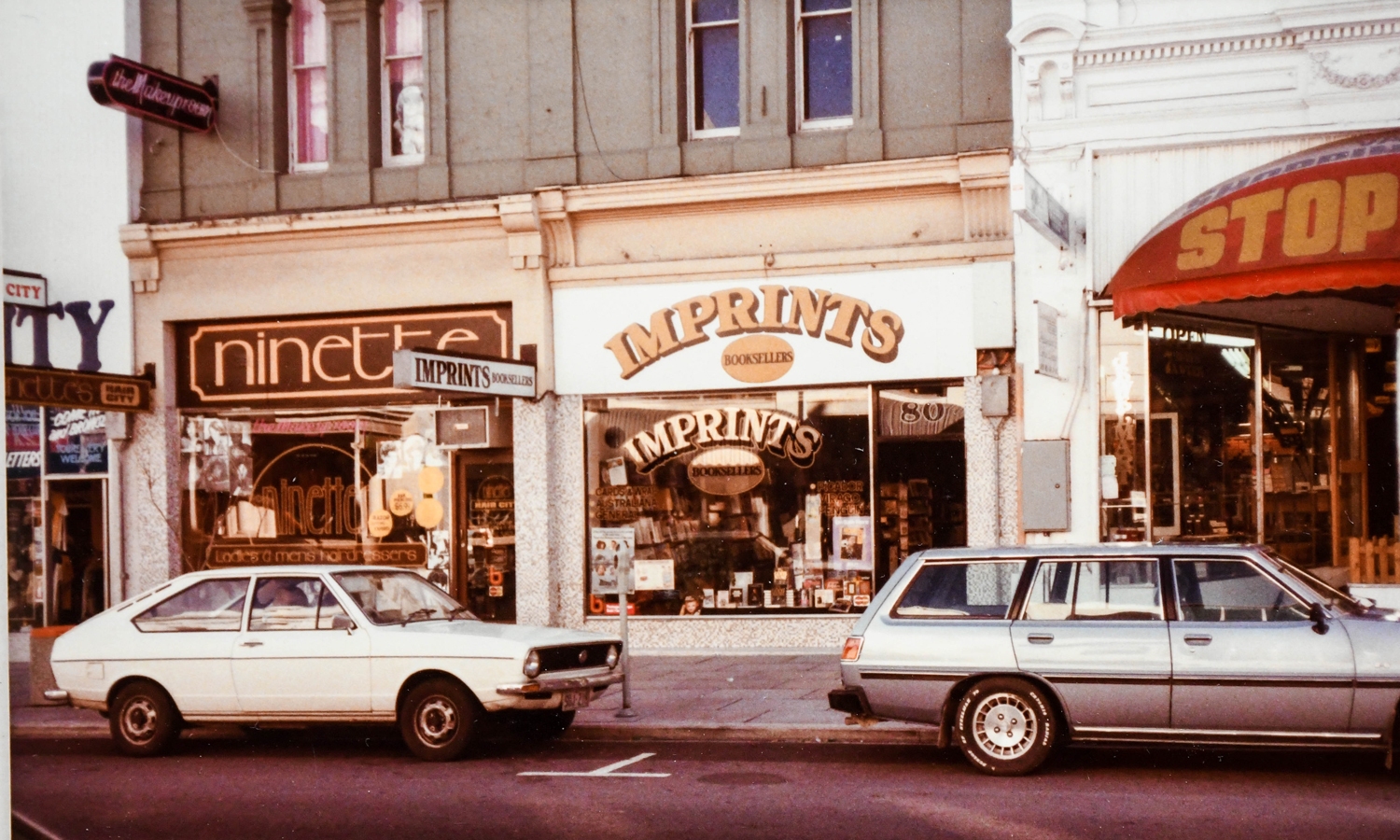
The original Imprints shopfront, at 80 Hindley Street. Photo: supplied
Greg Mackie, Graham’s son, remembers spending that first Easter weekend unpacking, checking and pricing the first books to go on the shelves. Six months later, after working as a weekend casual while a university student, he bought into the business and replaced his father on the frontline. “That was me for the next 21 years,” he told me. “Hooked on books!” Later, he and Gayle became the shop’s co-owners.
Greg and Jason – who became an Imprints customer when he was 17, two years after the shop opened – paint a picture of a thriving 1980s Hindley Street, dominated by amusement parlours, cinemas and restaurants, bars and clubs, and Australia’s first gelateria, Flash. (“The best gelati in the world,” says Jason, dreamily.)
Jason admits he “harassed” Imprints for a job, while spending all his pay from the nearby Third World Bookshop there, until “they gave in”, in 1993. He was 23 years old. Katherine arrived four years later, in 1997, as a 19-year-old work experience student, studying business administration at TAFE. “I came for a week and I never left,” she says.
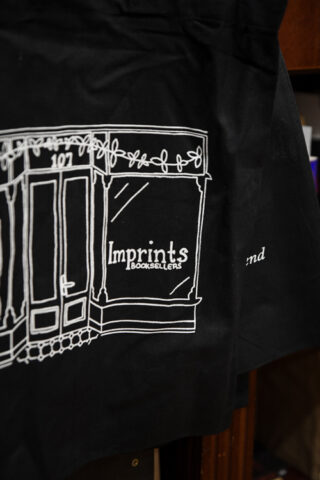
Photo: Jack Fenby
In 1999, the shop moved to its current location, 107 Hindley Street.
“There was an arts-led recovery for Hindley Street at the time,” remembers Jason. The Adelaide Symphony Orchestra, Arts SA and the Adelaide Festival, which was housed above the shop, moved in. “All within two years.” A record shop, Blue Beat, was next door. There were artist galleries and work spaces in laneways. “It was really diverse,” says Katherine.
The first event to be held in the shop was the launch of Deep Field, the second novel by James Bradley, an Adelaide author with an international readership and reputation.
“When I was first writing I used to go there all the time,” he told me. “It was a place where it felt like books mattered, but which was also incredibly welcoming, and didn’t mind if broke students sat around reading things without buying them. And they had things you couldn’t get elsewhere – literary magazines and poetry books, which mattered so much in the days before you could order things online.”
Imprints was the first bookshop in Adelaide to run really big events, too: it hosted people like Dame Joan Sutherland, Ian Rankin and Geoffrey Robertson to audiences of around 400 people, back in the days when events were promoted by paper mailouts rather than email lists.
Mackie, who built Imprints’ events program, later became chair of Adelaide Writers’ Week, co-founded the Adelaide Festival of Ideas, and became an Adelaide City councillor. Jason took over from Greg on the Writers’ Week committee, where he felt like “an imposter” among literary luminaries like David Malouf and JM Coetzee. Imprints has long been an integral part of Adelaide’s intellectual life.
When Greg and Gayle were ready to move on, they offered to sell the shop to their long-time employees – “the people we trusted most”, as Greg describes them. It was a natural transition, continuing what they’d always done: Jason gradually taking over from Greg behind the counter as “the face of Imprints”, and Katherine doing the accounts and administration, as Gayle had.
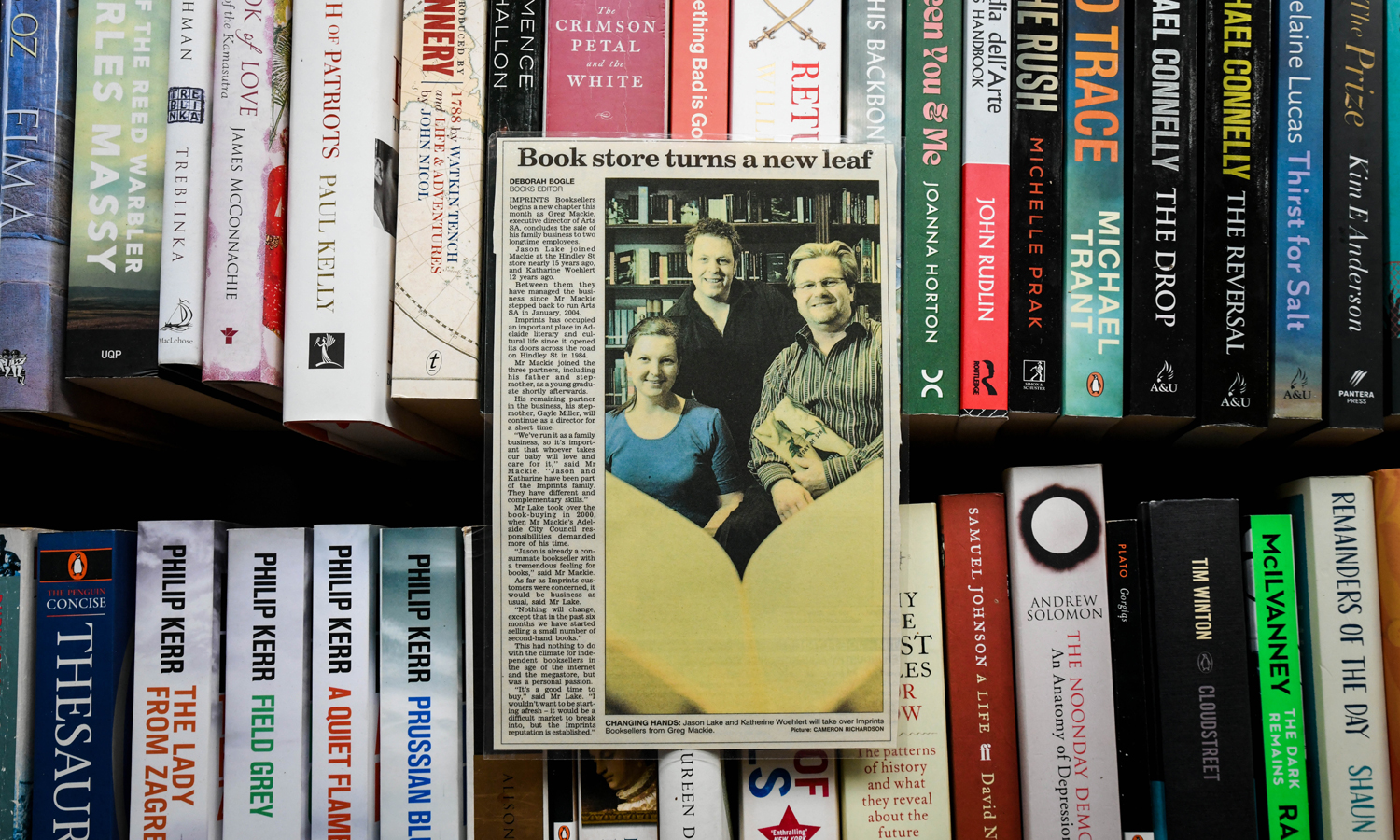
A story published in The Advertiser when Jason and Katherine took over from Greg Mackie as the new owners of Imprints. Photo: Jack Fenby
Their co-ownership began in 2007, the year of Kevin Rudd’s stimulus packages.
“We had the best first Christmas ever and we thought, we’ve nailed it!” remembers Katherine. “And then the GFC hit,” adds Jason.
The next year was a bad one. There have always been ebbs and flows, they say. They’ve weathered the arrival of internet bookselling and Amazon. The era of the book superstore, with Borders opening (then closing, in mid-2011) in Rundle Mall. The COVID lockdowns, and the subsequent decline of the CBD.
“The world was constantly changing,” reflects Jason.
One long, positive wave was Imprints’ decade-long stint running the Adelaide Writers’ Week book tent, which began in 2011 when Laura Kroetsch became director of the literary festival.
Kroetsch tells me that on her first day in Adelaide, after her interview for the job, she wandered down Hindley Street. “I thought the shop looked beautiful and walked in to ask for some South Australian writers.” Katherine suggested three, including Jared Thomas, and Kroestch walked away “knowing if I got the job, Imprints would be my bookshop”.
They agree those years working with the festival, and Kroetsch in particular, has been a career highlight. They’ve long described afternoons where Kroetsch would set up camp in the shop for the afternoon and they’d plan writers’ invitations together.
“If anyone read something they loved, Laura would invite them,” Jason says. “It was awesome. We were part of a team.”
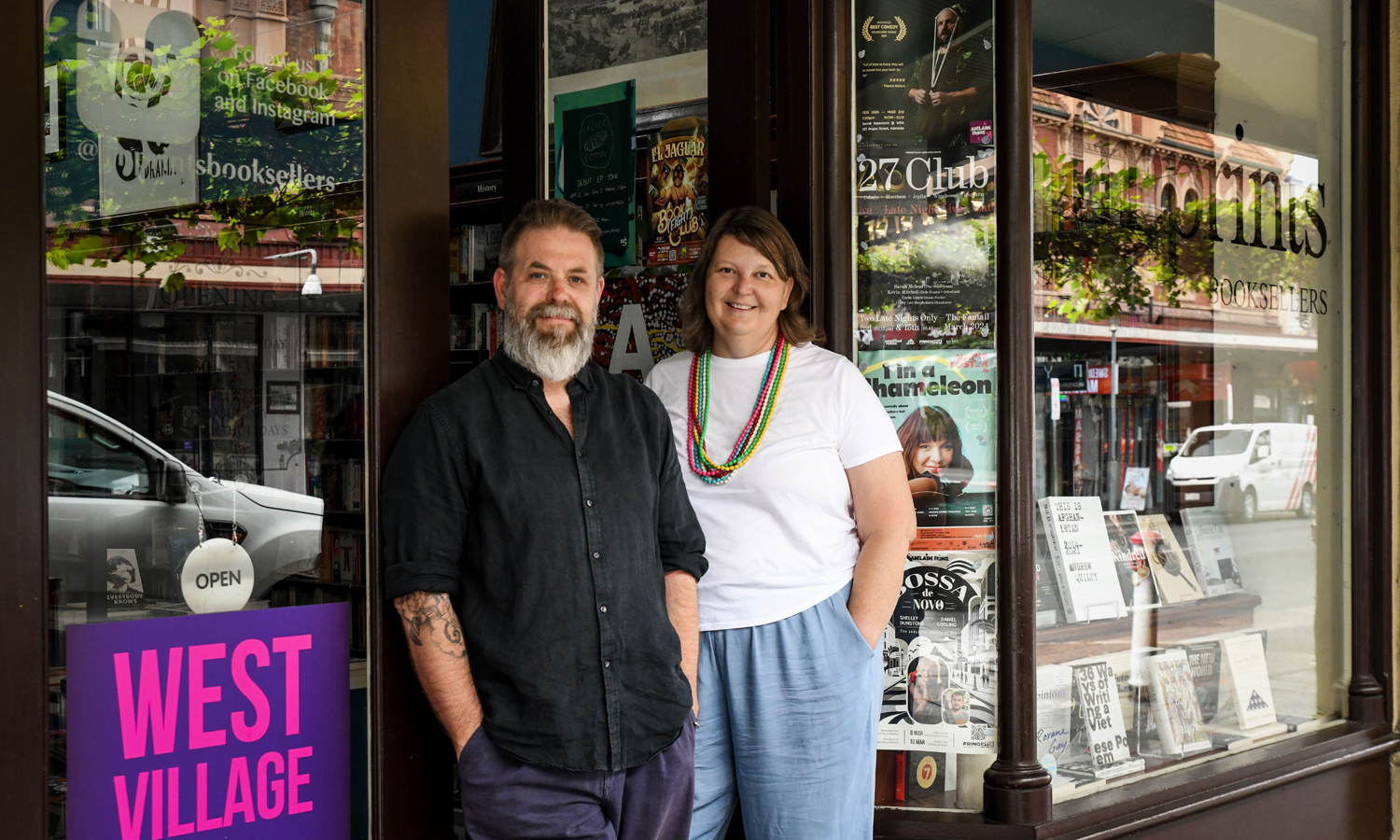
Jason Lake and Katherine Woehlert outside Imprints this week. Photo: Jack Fenby
Imprints continued amiably working with the next festival director, Jo Dyer, but when her term was coming to an end and the search was on for a new director, they saw an opportunity to bow out. In December 2021, Katherine had been diagnosed with breast cancer – while they were in the throes of preparing for Writers’ Week in March 2022.
“We did it,” Katherine recalls, wearily. “And it broke us,” adds Jason. During Writers’ Week, Katherine was doing chemotherapy and Jason badly hurt his knee.
Here, we come to the pair’s difficult decision to sell Imprints. They’re simply exhausted. And while they can see ways to revitalise the shop, they don’t have the energy to implement them.
I’ve spent so many hours at Imprints, as an employee and then as a customer, standing among the shelves as Kroestch perched on the counter stool and talked to Jason and Katherine about books. Now, Kroestch calls those conversations “a gift”.
She’s by no means the only person who feels this way. (Indeed, I am one of them: I have taken for granted my ability to wander into the shop when I feel like it and talk about books to passionate readers, sometimes for literally hours.) Imprints has always made old-fashioned customer service its cornerstone. Talking about books was a key job requirement for its booksellers, too: when I came to work there in 2018, I was delighted to discover my job interview consisted of being asked to “handsell” five favourite books, recommending them to an imaginary customer.
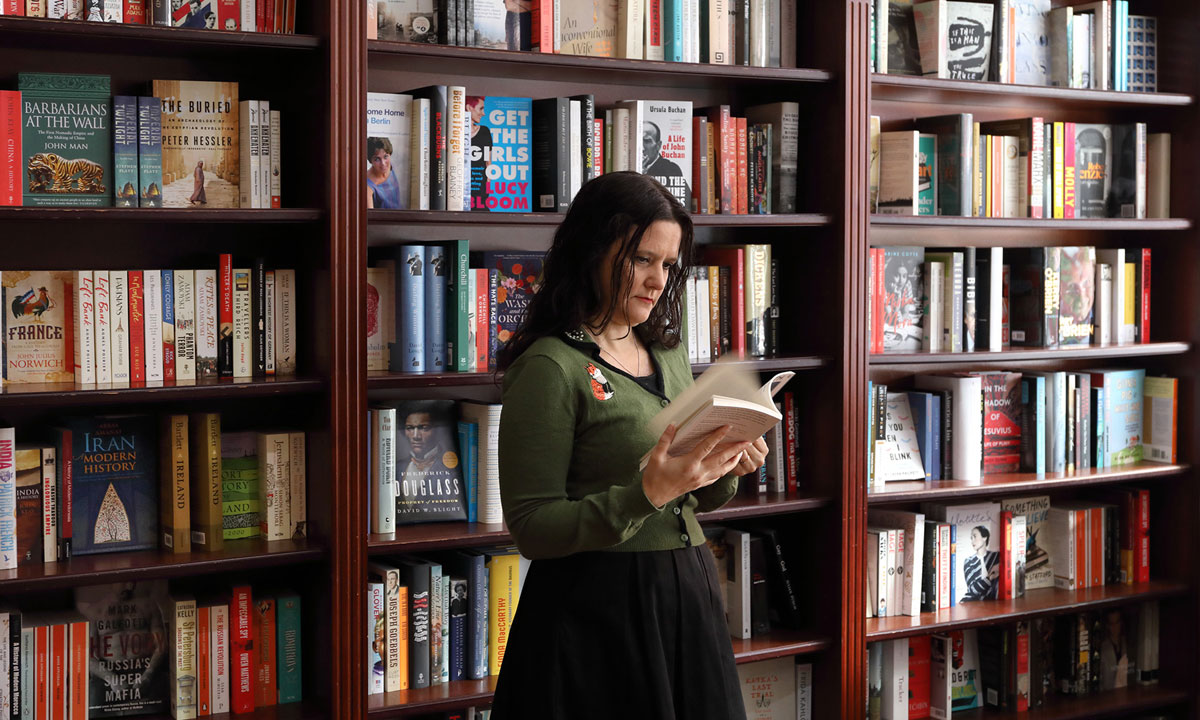
Jo Case, during her time working as a bookseller at Imprints. Photo: Tony Lewis / InDaily
Walter Marsh, who’s written for The Guardian and Saturday Paper as well as InReview, recalls the day last August when his first book, Young Rupert: The Making of the Murdoch Empire (which made international news), came out. “One of the first things I did was pay Imprints a visit to make sure it wasn’t all a dream,” he told me.

Get InReview in your inbox – free each Saturday. Local arts and culture – covered.
Thanks for signing up to the InReview newsletter.
Marsh says booksellers like Katherine and Jason provide “a history and community; they remember you and your tastes, will tell you frankly if a hyped new release is any good, and fish out something from under the radar”.
Katherine told me that function – reading voraciously and steering customers away from what they won’t like, as well as towards what they’ll like, is vital to what she and Jason do.
On the last day of Writers’ Week this year, I descended the stage from chairing a session to find Elizabeth Becker, a much-loved Imprints regular, standing before me on the lawns. “What will we do?” she asked me, after we exchanged greetings. “Who will tell me what to read?”
I report this to Katherine and Jason, who say they’re hearing a version of this most days right now. “What do you say?” I ask.
Katherine grins mischievously. “I say, the new owner will tell you what to read!”
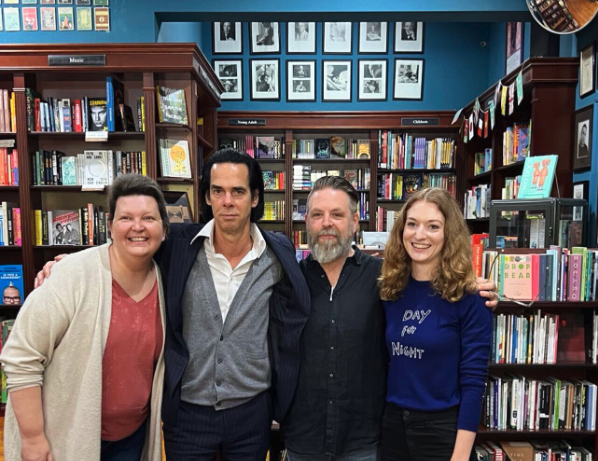
A photo shared on Imprints’ Instagram account after Nick Cave visited the shop for a book signing last year.
Jo Case is a monthly columnist for InReview and deputy editor, books & ideas, at The Conversation. She is a former bookseller at Imprints on Hindley Street and former associate publisher of Wakefield Press.
Support local arts journalism
Your support will help us continue the important work of InReview in publishing free professional journalism that celebrates, interrogates and amplifies arts and culture in South Australia.
Donate Here
